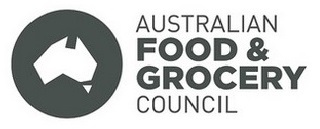IFGM – Identifies Key Challenges for FMCG Executives in Australia and New Zealand
Twenty four executives from across the FMCG supply chain in Australia and New Zealand attended the 16th Annual Food & Grocery Industry Executive Program at Melbourne Business School Mt Eliza Centre in September. A roundtable on the issues that were most important from their point of view resulted in the following points, (note: many of same themes covered during the ECRA conference in October):
- The profitability of suppliers, actually the lack thereof! There are a host of issues driving cost pressures in the industry. There is the constant pressure from retailers to drive prices down at the same time that the cost of doing business in Australia continues to rise (labour costs are high, the A$ is high, regulations abound and consumers are more demanding than ever about the quality and ingredients in their food). It’s a real conundrum, how to be a low cost producer of a high quality product. One participant summed it up by saying; a company can’t have the lowest price, best service and highest quality all at the same time – maybe 2 of these things but not all three. The cost pressure also puts a lid on brand building and innovation. There just aren’t any spare dollars to invest let alone the time to think deeply about solutions.
- Innovation: risks and rewards need to be shared. There is a lot of talk about moving to partnership models based on collaboration and learning to plan and grow together, but the reality is that many cases the relationships are transactional and tough. Collaboration is easier to talk about than it is to put into practice. It’s hard to know how, when and where to collaborate and even harder to take the first steps when there is very little trust in some quarters of the industry.
- Understanding the consumer: this is a key driver for growing revenue and a much-discussed topic during the week. Participants identified the importance of building brands which appeal to customers and earn their trust. However, this requires an investment in marketing that is ever more difficult to make. Major brands typically invest somewhere near 10% of sales in marketing activities but with margins shrinking this is tough to maintain. Whether you are a supplier with an existing brand or a retailer building a private label brand, marketing spend has to be sustained to build a brand vs. launch a logo.
- People: it will take new and clever thinking to solve the issues facing the industry. To do this it is important to have the right people but attracting and retaining talented people is a big issue for the industry. The pressure to do more with less and the difficulty of industry relationships does little to increase the attractiveness of working in FMCG companies. There has been significant churn at the executive level in many companies.
- Time: one of biggest barriers to solving the challenges faced within the industry is the same thing that executives face in any industry –the time to think about it, to take a strategic view and focus on making it happen. People are having enough difficulty handling day-to-day operations without trying to find time to think about change and doing things differently. The problem is that change happens whether you like it or not and staying the same may mean undesirable change is forced upon the industry.
The good news is that the world’s population is growing, especially the countries on our doorstep. The opportunities are there and with the talent in the room on this program, exciting things are bound to happen.
What do you think?
Do you agree that these are the most significant challenges in the industry?
What are your ideas on how to solve them?
The Food and Grocery Industry Executive Program will once again challenge delegates in 2014. If you or your colleagues are interested in staying ahead of the game and drilling down to the tough issues facing our industry visit the IFGM website here to find out more.

 Share Article
Share Article 